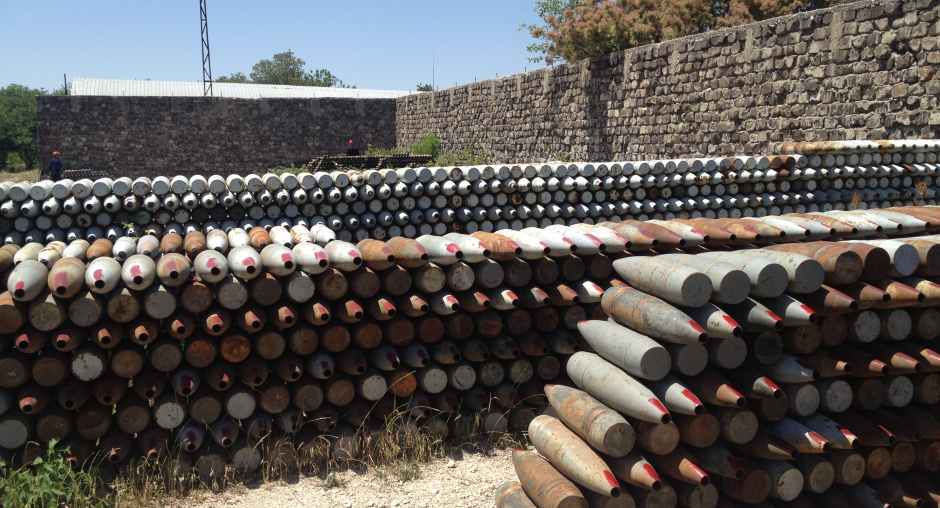Arms control
The OSCE’s founding document, the Helsinki Final Act of 1975, sets out the “need to contribute to reducing the dangers of armed conflict and of misunderstanding or miscalculation of military activities which could give rise to apprehension, particularly in a situation where the participating States lack clear and timely information about the nature of such activities.” Such CSBMs include information exchanges, means for compliance and verification, as well as different forms of military co-operation. They aim to reduce the risks of conflict, increase trust among OSCE participating States and contribute to greater openness and transparency in the field of military planning and activities. They can also serve as early warning indicators of potential conflict situations.
The key document on CSBMs is the Vienna Document on Confidence- and Security-Building Measures. It promotes trust and predictability through transparency and verification measures covering the armed forces and major equipment systems. The Framework for Arms Control agreed in 1996 recognized that arms control, including disarmament and confidence- and security-building, is integral to the OSCE’s comprehensive and co-operative concept of security. The Vienna Document, the Treaty on Conventional Forces in Europe (CFE) and the Open Skies Treaty constitute a web of interlocking and mutually reinforcing arms control obligations and commitments. Together they enhance predictability, transparency and military stability and reduce the risk of a major conflict in Europe. In addition, the CFE Treaty also provides for limitations of major military equipment systems in Europe that led to the disarmament process in the 1990s.
The Forum for Security Co-operation, which is the OSCE decision-making body dealing with politico-military aspects of security, contributes to these efforts by developing documents on CSBMs, including those regulating transfers of conventional arms, and establishing principles governing non-proliferation. The Forum helps implement the OSCE Code of Conduct on Politico-Military Aspects of Security. This landmark document in security sector governance commits OSCE participating States to exchange information on the democratic oversight of their armed and security forces. The Forum also develops norms and provides practical assistance to address the proliferation of illicit small arms and light weapons.
A number of OSCE field operations are active in the area of arms control. They co-operate with national governments and international organizations. Their activities include:
- Strengthening small arms and light weapons and conventional ammunition stockpile management, including destruction;
- Supporting national small arms control mechanisms;
- Assisting with the rehabilitation of areas contaminated with explosives;
- Assisting in disposing of dangerous chemicals stored in military premises, including mélange, a highly toxic and volatile rocket fuel component;
- Contributing to national initiatives to collect illegal small arms and light weapons;
- Supporting initiatives to decrease the illegal possession of weapons;
- Organizing training and awareness-raising campaigns.

